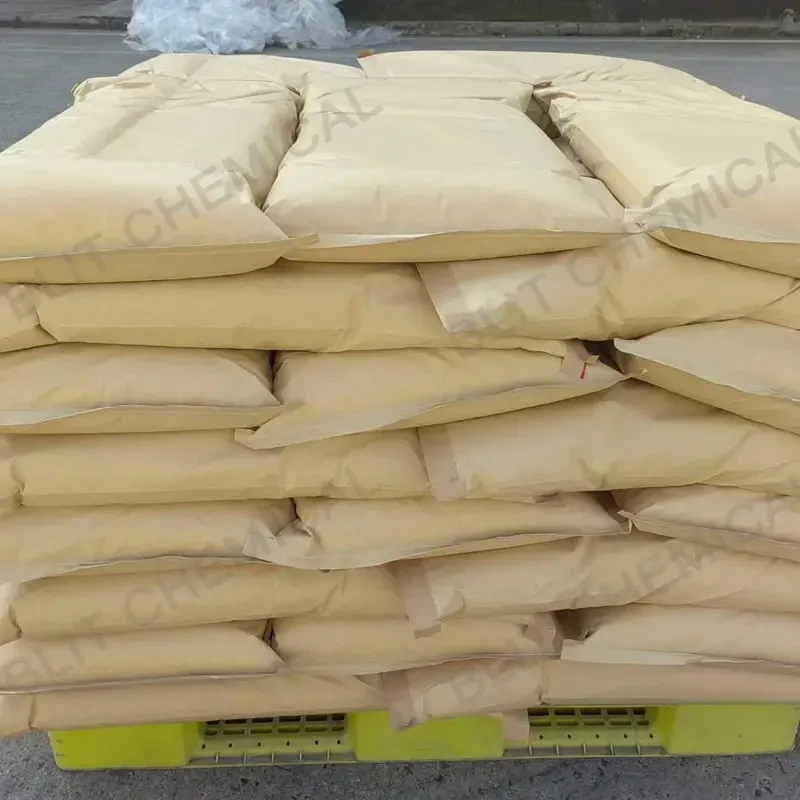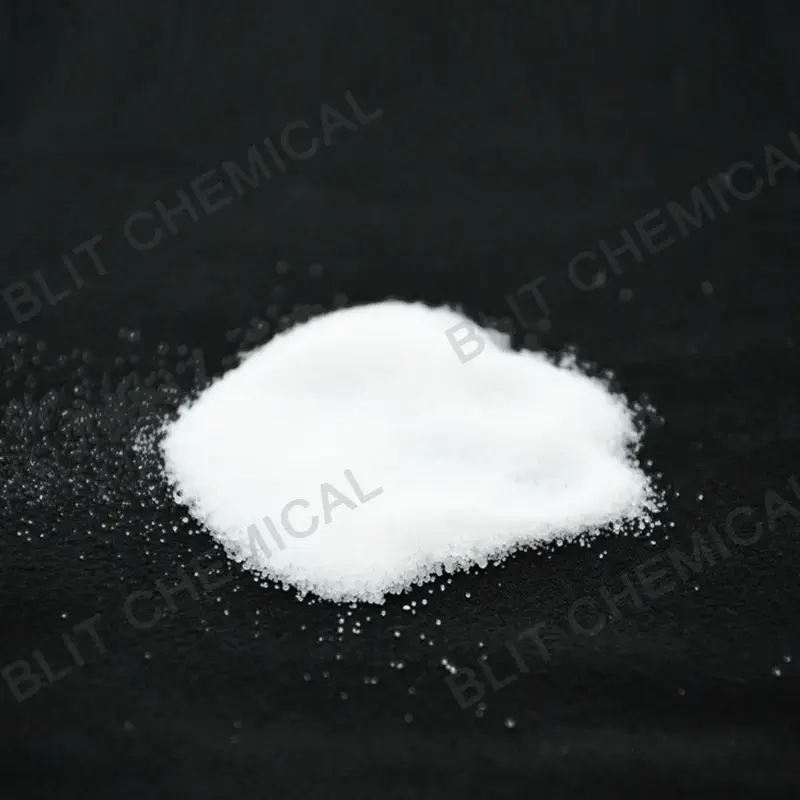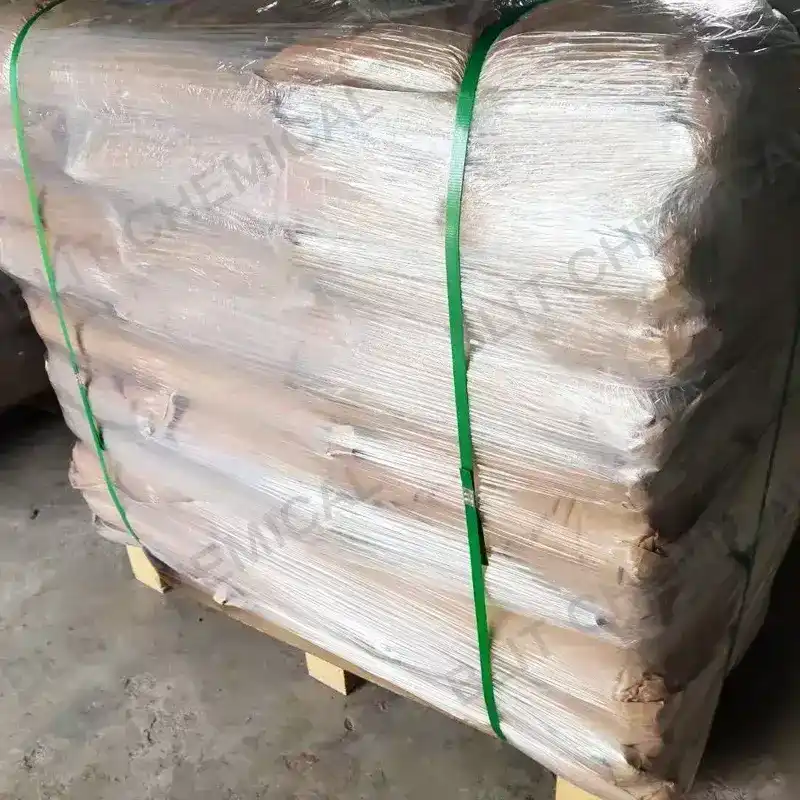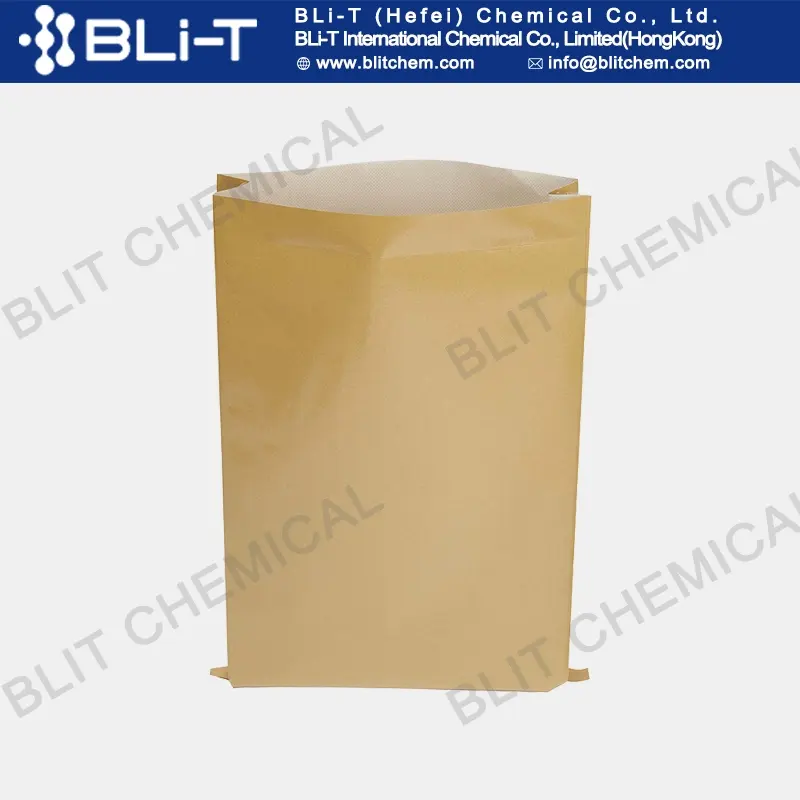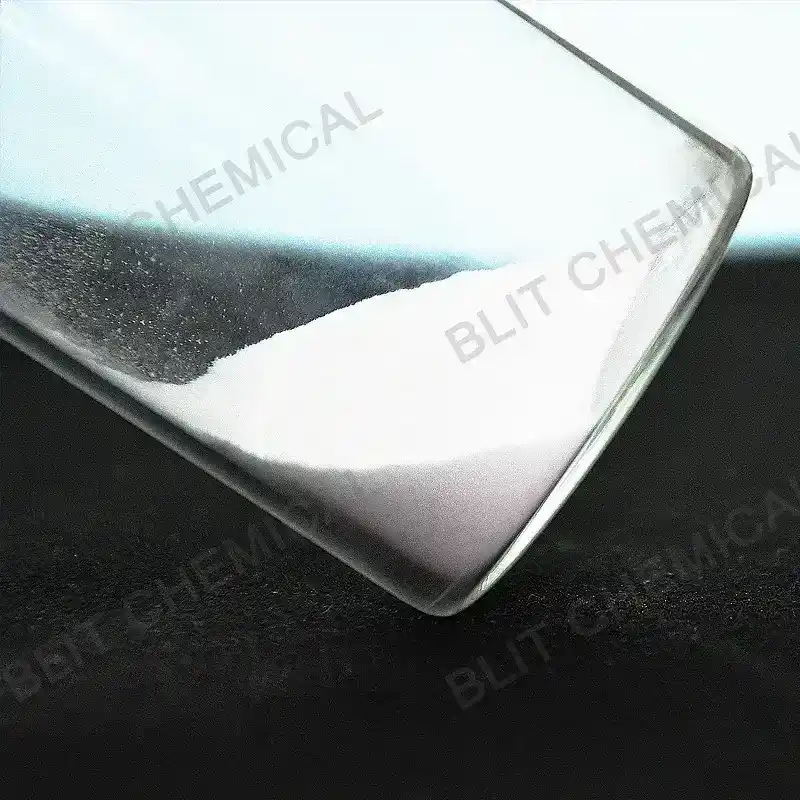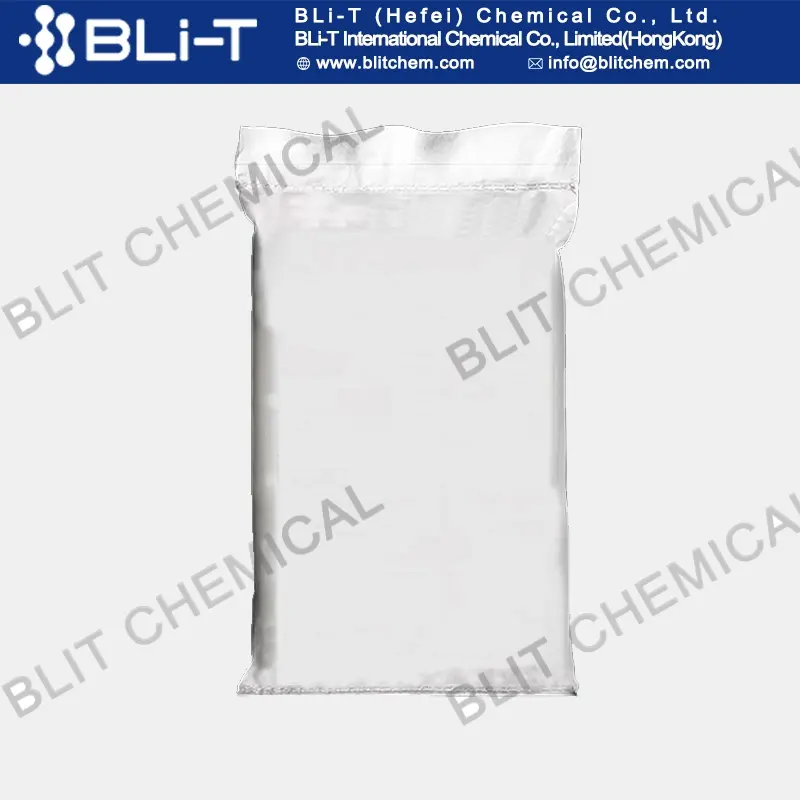Where to buy Sodium persulfate NPS CAS 7775-27-1 from China? BLIT provides: specification, price trend, manufacturer certificate, factory plant, MSDS, TDS, COA. To buy Sodium persulfate NPS CAS 7775-27-1 from China supplier BLIT Chemical, please contact info@blitchem.com
Sodium persulfate NPS CAS 7775-27-1
Description
- CAS: 7775-27-1
- Synonyms: NPS,(SPS),Sodium persulfate,sodium peroxydisulfate
- Einecs: 231-892-1
- Molecular Formula: Na2O8S2
- Grade: 99.0%
- Package: 25kg/bag or as required
Details
Sodium persulfate is a white, crystalline, odourless salt. It is used as initiator for the polymerisation of monomers and as a strong oxidizing agent in many applications. It has the particular advantage of being almost non-hygroscopic, of having a particularly good storage stability as a result of its extremely high purity and of being easy and safe to handle.
Specification:
| Appearance | white crystalline salt |
| Assay | 99.0% w/w min |
| Chloride and Chlorate (as Cl) | 0.005% w/w max |
| Manganese (as Mn) | 0.0001% w/w max |
| Iron (Fe) | 0.0005% w/w max |
| Heavy Metals (as Pb) | 0.001% w/w max |
| Moisture | 0.05% w/w max |
| Active oxygen | 6.65% w/w min |
| Ammonium(NH4 + ) | 0.05% w/w max |
| PH (50g/L) | 4.0-7.0 |
| Decomposition of the product as supplied | at above 180°C |
| Recommended storage temperature | see MSDS |
| Storage stability as from date of production | 12 months |
Storage:
NPS (SPS) is not combustible but assists combustion of combustible materials due to release of oxygen. Provided it is stored under appropriate condition. It must be stored dry in closed containers and protected from direct sunlight, heat and humidity. Impurities such as dirt, rust or traces of metal and reductants may cause catalytic decomposition. The productas supplied or in solution needs to be handled with appropriate care. The eye, skin and clothes must be protected when working with NPS (SPS). NPS (SPS) as damp powder or aqueous solution has a bleaching and slightly corroding effect.
Application:
Polymerisation: Initiator for the emulsion or solution polymerisation of acrylic monomers, vinyl acetate, vinyl chloride etc. and for the emulsion copolymerisation of styrene, acrylonitrile, butadiene etc.. Dosage: 0.1-0.5% NPS (SPS). Temperature: 75-95°C. In combination with redox systems (ascorbic acid, Rongalit, sulfites or sugar –possibly in combination with heavy metal salts such as Fe 2+ it can also be used for polymerisation reactions carried out at lower – and even at ambient – temperatures. To reduce the residual monomer content, a combination of NPS (SPS) with TBHP-78-AQ is recommended, particularly in cases where redox systems are used.
Metal treatment: Treatment of metal surfaces (e.g. in the manufacture of semiconductors; cleaning and etching of printed circuits), activation of copper and aluminium surfaces.
Cosmetics: Essential component of bleaching formulations.
Paper: Modification of starch; Repulping of wet-strength paper.
Textile: Desizing agent and bleach activator – particularly for cold bleaching (i.e. bleaching of Jeans).
Others:
– Chemical synthesis
– Water treatment (decontamination)
– Waste gas treatment, oxidative degradation of harmful substances (e.g. Hg)
– Disinfectant
Transportation:
Road/Rail transport: GGVS, GGVE, ADR, RID\CLASS 5.1
Sea transport: GGV See/IMDG code: CLASS 5.1 Page 5126,UN no.1444
Water hazards class 1 (slight water hazard)
Package:
(1) 25kg net weight PE bag
(2) 300kg net weight woven bag with one PE liner
(3) 500kg net weight woven bag with one PE liner
FAQ
-
Q: What kinds of transportation types can you provide?A: We can provide a variety of transportation methods including sea transportation, air transportation, land transportation, express delivery, etc.
-
Q: How long does it usually take to receive your reply?A: We can guarantee to reply your inquiries in less than 24 hours in working days.
-
Q: What is the minimum order quantity for the goods?A: A standard package is generally more convenient for transportation, but we can also repackage according to customer requirements.
Contact Form
Use our contact form to send us your questions, suggestions or comments. We will respond as soon as possible.
Related Products
-
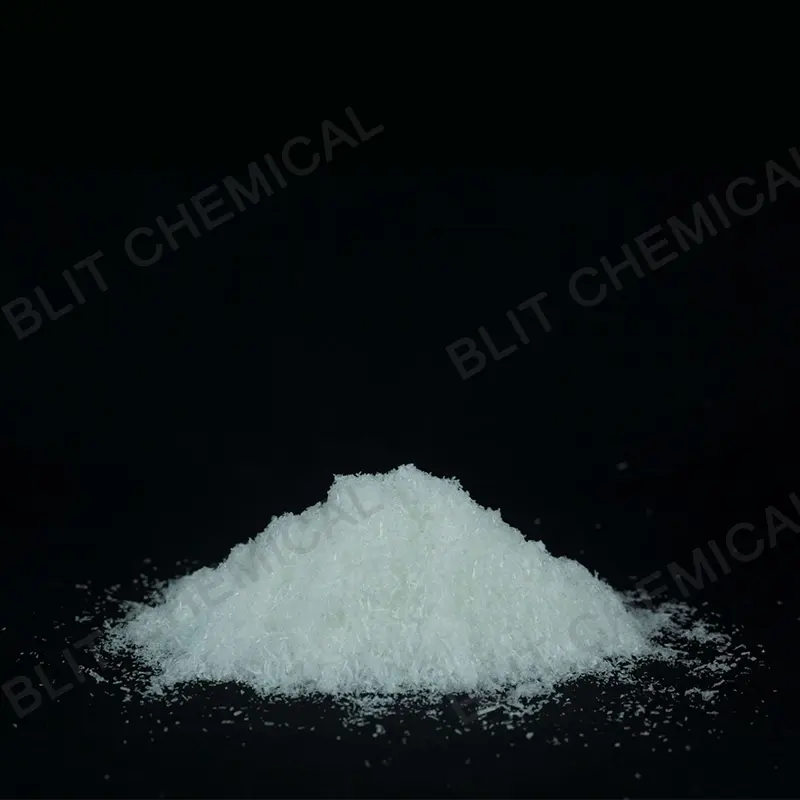
Imidazole CAS 288-32-4
-
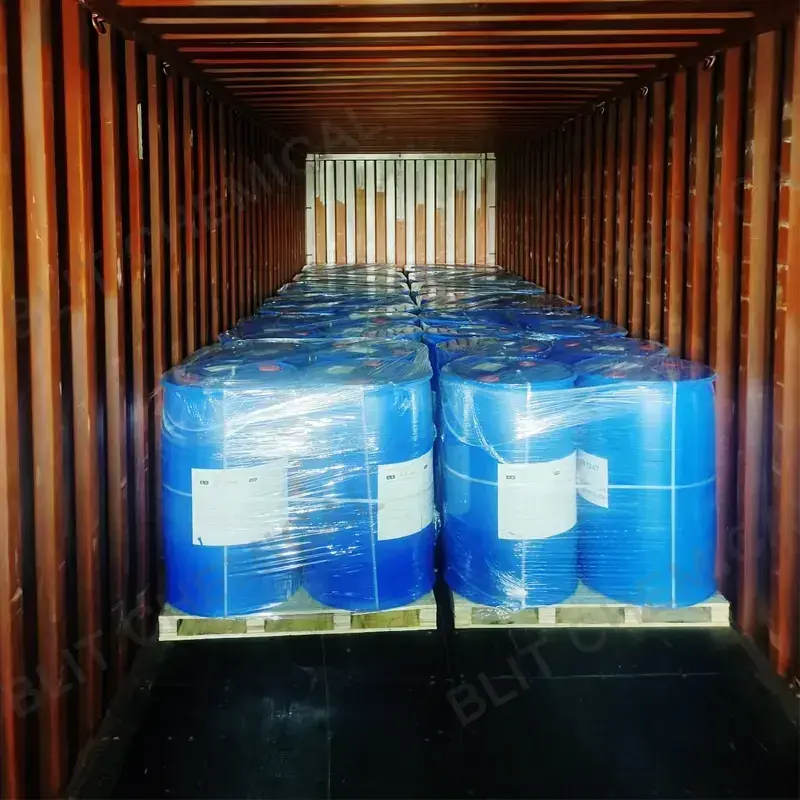
C16-C18 Alkyl Dimethyl Amine DMA1618 CAS 68390-97-6
-
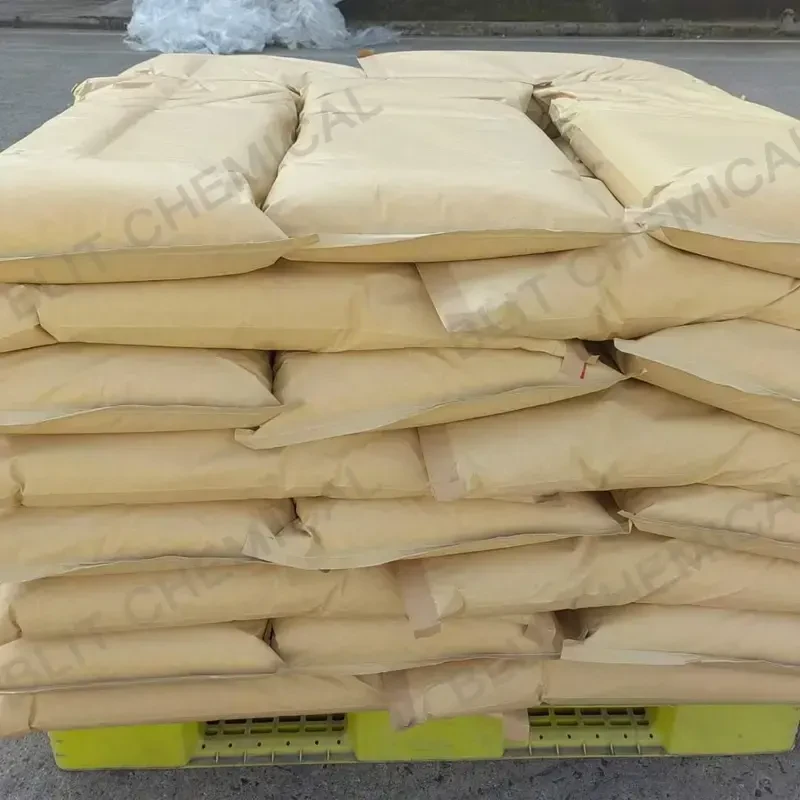
2-Ethylanthraquinone 2-EAQ CAS 84-51-5
-
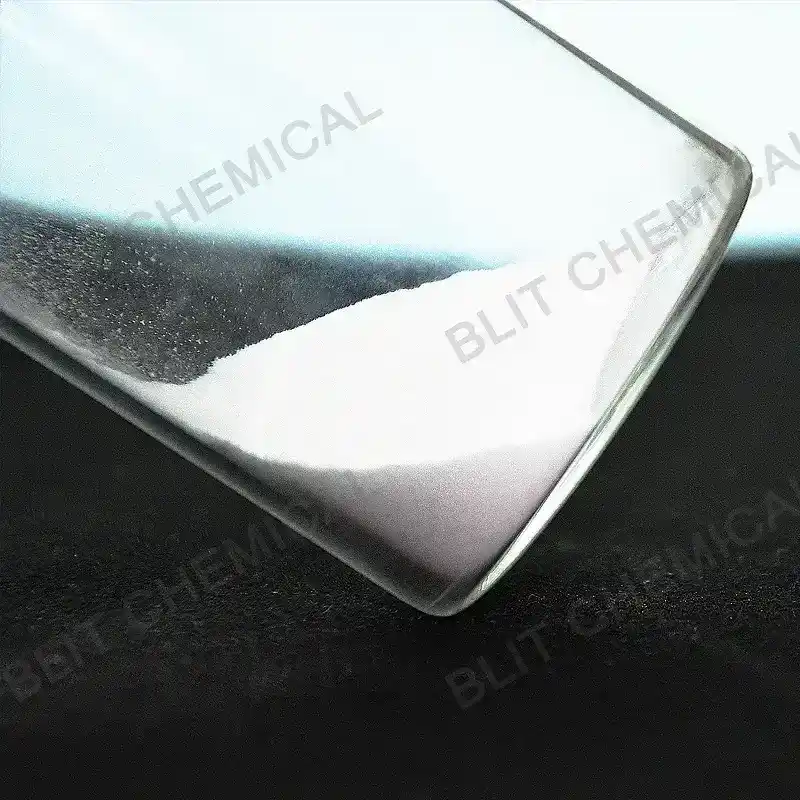
Dibenzoyl-L-Tartaric Acid CAS 2743-38-6/62708-56-9
-
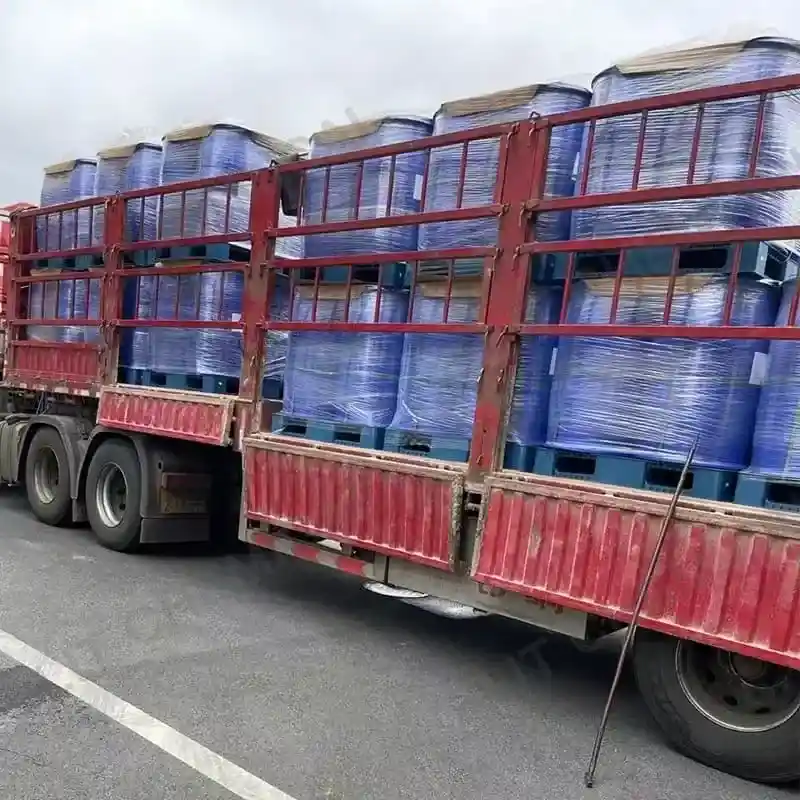
N-Methyl-2-pyrrolidone NMP CAS 872-50-4
-

Phosphoric acid CAS 7664-38-2
-
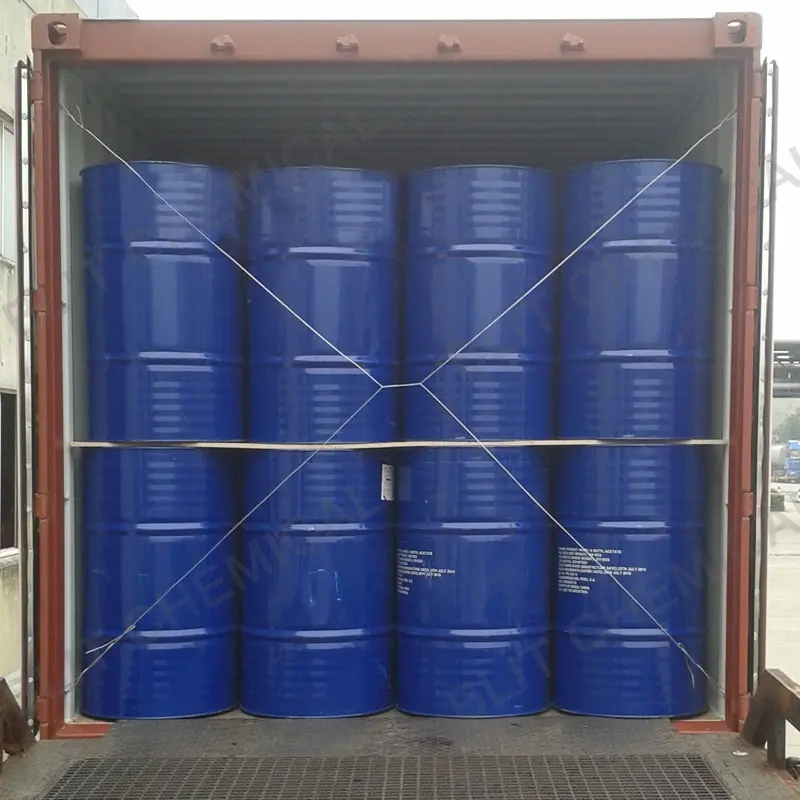
Propargyl Alcohol CAS 107-19-7
-
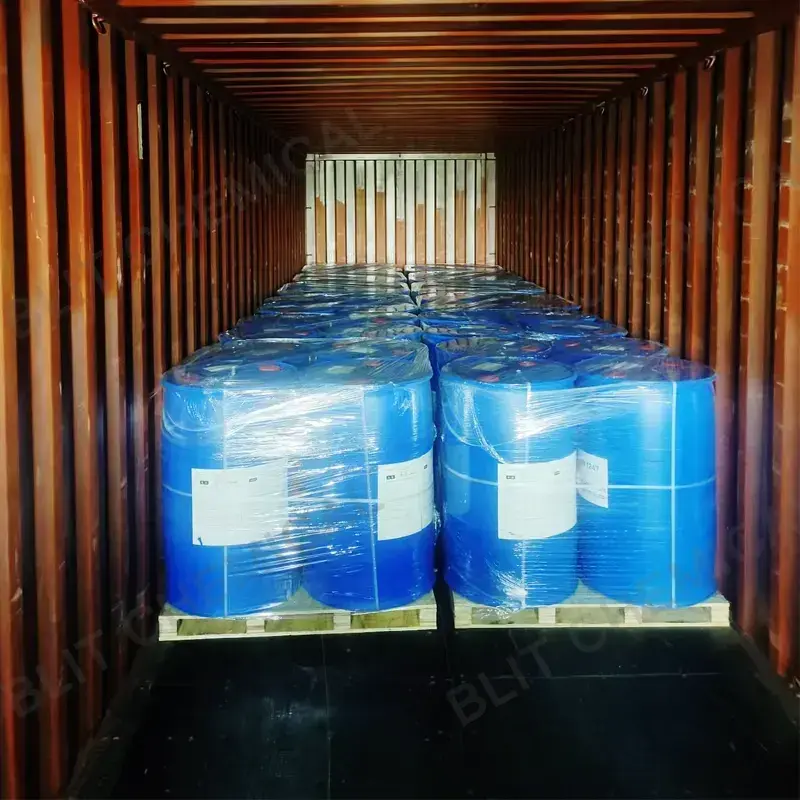
Hypophosphorous Acid HPA CAS 6303-21-5


